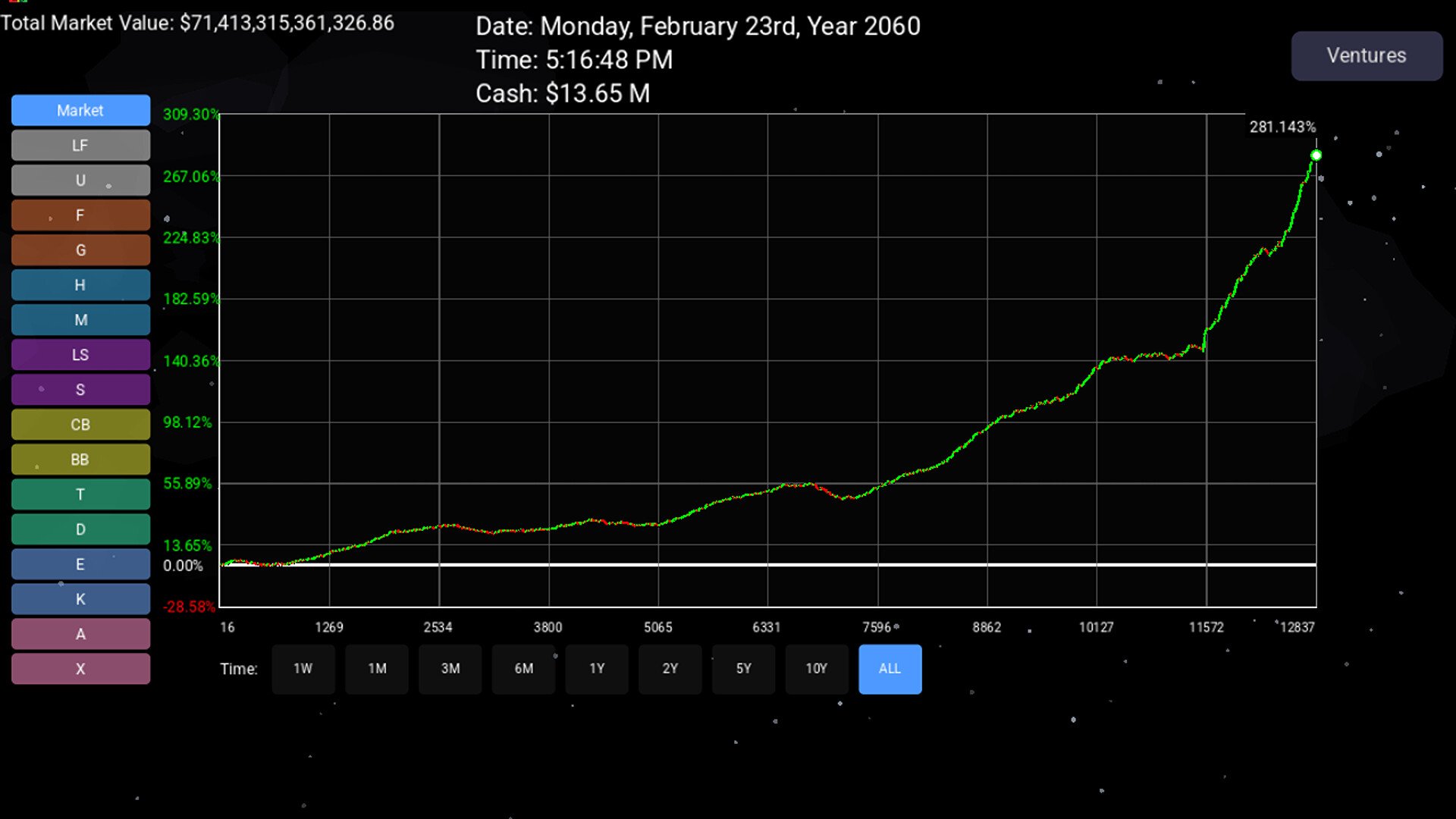Breadbulls has arrived, promising a unique blend of idle gameplay and economy simulation. This indie title challenges players to navigate the complexities of the financial world, making strategic decisions to amass wealth or risk it all. With its arcade-style gameplay and real-time simulation options, Breadbulls offers a versatile experience for both casual players and strategy enthusiasts. Is Breadbulls the next big thing in the sim genre? Let's dive in and find out.

What Breadbulls Brings to the Table
Breadbulls sets itself apart as an idle economy simulation game where players can dive into various financial activities. You can get a job, invest in companies, lobby congress, take out loans, and buy bonds. The game offers two distinct modes: Arcade, where time moves rapidly, with each run lasting only a few days, and Realism, where time progresses in real-time. This dual approach caters to different play styles, allowing for both quick, high-stakes sessions and long-term strategic planning.
At its core, Breadbulls is designed around setting high scores. Players are encouraged to learn the intricacies of the game's mechanics and make increasingly risky and strategic decisions to accumulate wealth. The game's appeal lies in its accessibility and depth, making it suitable for both newcomers to the genre and seasoned simulation veterans. The indie title is set to launch in September 2025, and offers players a chance to test their financial prowess and risk tolerance in a dynamic and engaging environment.
The core gameplay loop revolves around making informed decisions about where to allocate your resources. Whether you're investing in emerging companies or influencing political decisions through lobbying, every action carries potential consequences. The game's simulation mechanics provide a relatively simplified but engaging economic model, ensuring that players are constantly challenged to adapt and optimize their strategies. This blend of accessibility and strategic depth is a key feature.
Breadbulls targets players who enjoy simulation and strategy games. The game is designed to be approachable for newcomers while still offering enough depth for experienced players to sink their teeth into. The game's arcade mode caters to those who prefer quick, high-stakes sessions, while the realism mode appeals to players who enjoy long-term planning and strategic decision-making. The game also includes some elements of chance and randomness, adding an additional layer of challenge and replayability.
Performance and Value Analysis
Breadbulls comes with modest PC requirements, ensuring accessibility for a wide range of players. The minimum requirement is a Windows 10/Linux operating system, and the developers state that the game should run on a variety of hardware configurations without needing a supercomputer. This accessibility is a significant advantage, making it an attractive option for players with older or less powerful systems. While no specific RAM or GPU details are provided, the game's design suggests that it is optimized for low-end hardware, emphasizing its focus on gameplay and simulation mechanics rather than high-fidelity graphics.
Considering its price point of 4.99€, Breadbulls offers a solid value proposition. The game's blend of arcade-style gameplay and real-time simulation provides a versatile experience that can cater to different player preferences. The low price point makes it an affordable option for players looking for a unique and engaging simulation title without breaking the bank. Given the game's depth, replayability, and potential for strategic experimentation, Breadbulls represents a compelling value for those interested in economy and simulation games.
Breadbulls offers two distinct modes: Arcade and Realism. Arcade mode accelerates the pace, allowing players to experience significant economic cycles in a short amount of time. This mode is perfect for quick sessions and experimenting with different strategies without committing to long-term investments. Realism mode, on the other hand, simulates time in real-time, requiring players to make more patient and calculated decisions. The distinct modes help set it apart from other idle economy games.
Compared to other similar titles in the simulation genre, Breadbulls offers a unique twist with its arcade-style gameplay and focus on personal risk tolerance. While games like Stonks Simulator and The Corporate Machine offer deeper economic simulations, Breadbulls distinguishes itself with its accessibility and emphasis on high-score gameplay. This unique blend makes it an attractive option for players who want a more casual yet engaging simulation experience.

Community and Long-Term Appeal
As a new release, Breadbulls is still in the early stages of building a community. The developers, Pataroro, have provided an email address (breadbullsgame@gmail.com) for support, indicating a commitment to addressing player feedback and issues. As the game gains traction, a community may form around sharing strategies, high scores, and providing feedback to the developers. A strong community can significantly enhance the game's long-term appeal by fostering engagement and providing a platform for players to connect and collaborate.
Breadbulls is a single-player game, and offers a Family Sharing option which indicates a level of accessibility, but also a limited scope for multiplayer or collaborative features. The inclusion of achievements and leaderboards could add a competitive element, encouraging players to strive for high scores and compare their progress with others. Implementing modding support can be a way to extend longevity.
With its blend of arcade-style gameplay and real-time simulation, Breadbulls offers a relatively high replay value. The game's different modes, strategic depth, and elements of randomness encourage players to experiment with different approaches and strategies, potentially playing it for many hours. The low price point makes it accessible.
Looking ahead, the longevity of Breadbulls will depend on the developers' commitment to post-launch support and content updates. Regular updates that add new features, challenges, or scenarios could help keep the game fresh and engaging. Incorporating player feedback and addressing community concerns can also contribute to the game's long-term success. Pataroro will need to balance ongoing support to sustain player interest and ensure Breadbulls remains a compelling simulation title.
Final Verdict
Breadbulls presents an intriguing mix of idle gameplay and economy simulation, offering players a chance to test their financial acumen and risk tolerance. The game's accessible mechanics and dual Arcade/Realism modes cater to diverse play styles, making it a potentially attractive option for both casual and strategy-focused gamers. While its long-term appeal remains dependent on post-launch support and community engagement, Breadbulls' affordable price point and unique gameplay elements make it worth a look for fans of the simulation genre.
Given its low price, Breadbulls is best suited for players who enjoy experimenting with different strategies and scenarios in a relatively low-stakes environment. Those seeking a deeper, more complex simulation experience may find it lacking in depth, but the game's accessibility and arcade-style gameplay make it a good entry point for newcomers to the genre. It can also appeal to players who appreciate unique indie titles that blend accessibility with strategic depth.
Pros & Cons
✅ Pros
- Unique blend of idle gameplay and economy simulation
- Accessible mechanics and dual Arcade/Realism modes
- Affordable price point at 4.99€
- Modest PC requirements ensure accessibility
- Engaging for both casual and strategy-focused players
❌ Cons
- Limited long-term appeal without post-launch support
- May lack depth for players seeking complex simulations
- Still in early stages of community development
- Single-player only, lacks multiplayer features
- Relies on strategic decision-making, elements of chance